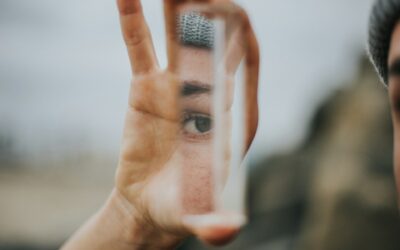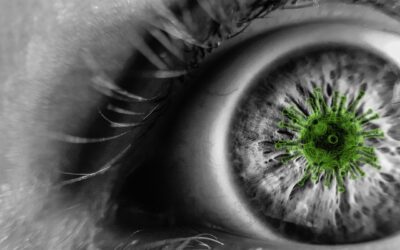Diabetes is becoming an increasingly prevalent problem in the United States, and is expected to become even more common in the upcoming years. Beyond being an overall health risk, diabetes can pose serious threats to the health of the eyes. Both Type 1 and type 2 diabetes have the potential to cause sight threatening damage if not properly controlled. Monitoring blood sugar levels and maintaining control of the condition with options such as diet, exercise, or medication is important. Those affected by diabetes should work closely with both their primary care doctor and their optometrist to protect their eyes.
Diabetic Retinopathy
Diabetes can cause a multitude of problems in the eyes, but one of the most common and concerning complications is diabetic retinopathy. This condition affects the retina, which lines the back of the eye and receives all visual information. The retina receives vital blood flow from lots of small and fragile blood vessels, which can become affected in diabetes if blood sugar levels are poorly controlled. In mild cases of diabetic retinopathy, the blood vessels in the retina may leak, leaving small hemorrhages in the retinal tissue. If the disease continues to progress, it can lead to areas of the retina losing oxygen, or proteins leaking out of blood vessels and causing large areas of retinal swelling. Many times, these changes can occur in the retina without causing any significant symptoms until lots of damage has already occurred. In the most severe cases of diabetic retinopathy, complications like retinal detachments can occur. If not promptly addressed, these severe complications can lead to permanent vision loss.
Who is at Eye Disease from Diabetes?
There are two main factors that increase the risk of developing diabetic retinopathy. The first is how long the person has been diabetic. Those who have been diabetic for several decades are more likely to develop diabetic retinopathy than those who have recently been diagnosed. This is because fluctuations in blood sugar levels can cause damage to blood vessels over long periods of time, and the retinal vessels that have been affected for many years are more likely to be compromised. The second factor is how well diabetes is controlled. Diet and exercise are important in keeping blood sugar levels under control, and in many cases medication may also be required. Following the directions of the primary care doctor or endocrinologist can not only help control diabetes, but it can also help protect the eyes.
Treating Diabetic Retinopathy
The most important aspect of preventing or treating vision loss due to diabetic retinopathy is early detection of the condition, which is why routine eye examinations are so important. Mild cases of diabetic retinopathy may simply be monitored and can improve if the blood sugar becomes better controlled. In cases of diabetic retinopathy where retinal swelling is affecting vision, treatment options can include injections or laser procedures. If diabetic retinopathy has resulted in a retinal detachment, then a major surgical procedure may be required in an attempt to preserve vision. If you have diabetes, working closely with your optometrist and your doctors can help prevent vision loss from diabetic retinopathy.





